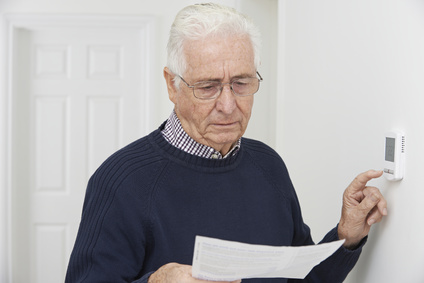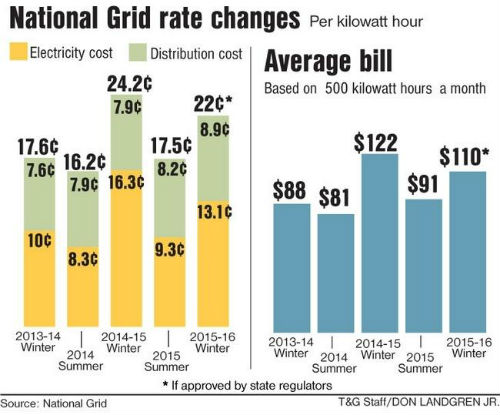Yet Another Reason to Shop for Energy in Massachussetts

Massachussetts National Grid customers are in for another nasty price shock on their energy bills starting in November. Last month the utility filed a proposal to increase electricity supply rates by 40 percent this winter, meaning that customer bills will increase by about 20 percent during the period of November 2015 to April 2016. Are you a Massachussetts National Grid energy customer? Find out more about this rate increase and how you can avoid paying more on your bills here.
Backgrounder
As a regulated electricity and gas utility company, National Grid is responsible for delivering energy to customers within its service area. The company is also the default energy provider for customers who choose not to purchase energy from an alternate supplier. National Grid's default rates are regulated, meaning that the company follows a purchasing process that has been approved by the Department of Public Utilities, and must file rate propositions with the DPU.
National Grid does not generate electricity, but the company does purchase energy on the wholesale market on behalf of its customers. Under Massachussetts state law, the utility is allowed to bid twice a year for power supply. National Grid must award contracts to the lowest bidders, and pass along the costs to customers at no markup (the utility makes its money through what it charges for delivery). Nevertheless, power prices are particularly high in Massachussetts - as of May 2015 they were the fourth highest in the country (after Hawaii, Connecticut, and Alaska).
Electricity prices tend to be higher in the winter than in the summer in Massachussetts because supply is more expensive in the winter. Part of this is due to the price and availability of natural gas in the state. Natural gas is used to generate more than half of the state's electricity, but power producers have to wait behind gas companies that sell gas for heating for access to the pipelines that deliver natural gas to Massachussetts. This pipeline issue has been one reason why power prices have been so volatile in recent years; power prices spiked two years ago after a natural gas shortage (due to insufficient pipeline capacity), which hurt power generators' profits and led them to bid much higher prices last year (in anticipation of more natural gas shortages). Power prices rose again as a result, even though the anticipated natural gas shortages never materialized.
While this year's rate increase may sound considerable, it is actually less dramatic of a price spike than what National Grid customers experienced last year, when electricity rates went up nearly 50 percent. In fact, this year's rate increase is about 10 percent less than last year's, when the average customer monthly bill hovered at about $121.

Power prices are up this year, but by less than last year's price shock
How to Avoid Power Price Shocks
While nobody likes the idea of paying more for their power, National Grid customers can find some comfort in knowing that at least this news isn't coming as a surprise. In fact, now is a great time to shop around for a new energy plan to avoid any nasty shocks to your bill. The possibility for dramatic price increases such as the one National Grid customers will experience this November is another reason why we recommend fixed price energy plans. Choosing a fixed rate allows you to lock in a lower rate and save money, as well as giving you stability and peace of mind.
At Callmepower, we have short term plans, as well as fixed price plans for 18, 24, or even 36 months. Call us at phone currently not available to find the best long-term rates in your area.
